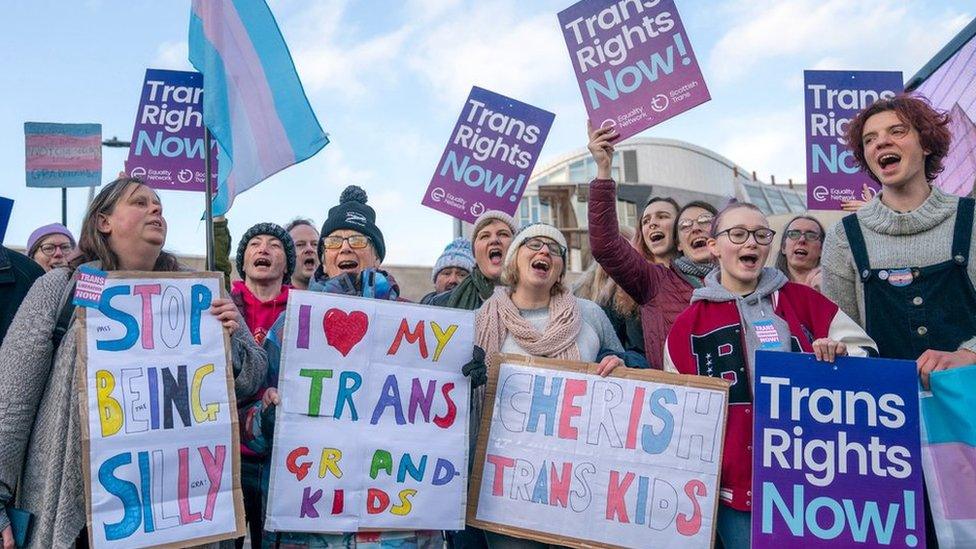Scottish government abandons court case over gender law veto
- Published
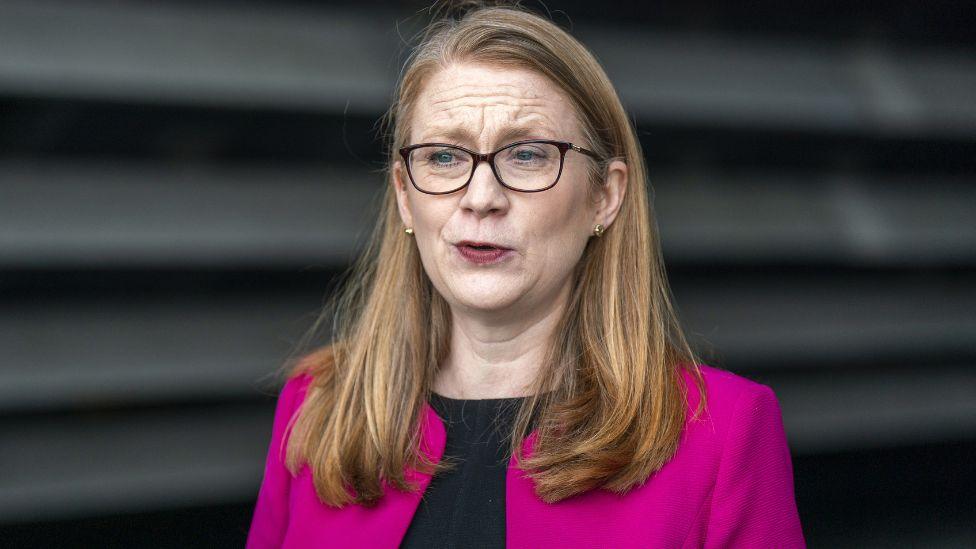
Social Justice Secretary Shirley-Anne Somerville says the government remains committed to supporting the trans community
Scottish ministers have confirmed they will abandon their legal challenge against a UK government veto of gender recognition reforms.
Social Justice Secretary Shirley-Anne Somerville said the Scottish government remained committed to improving transgender health care.
The Court of Session ruled earlier this month that the block on the gender self-ID reforms was legal.
The Scottish government had until 29 December to appeal against that ruling.
Scottish Secretary Alister Jack welcomed the decision and said the UK government would seek to reclaim expenses from the case, understood to be about £150,000.
Legislation making it easier for people to change their legally-recognised sex was passed by the Scottish Parliament last year.
The UK government used a Section 35 Order of the Scotland Act to prevent it from becoming law over concerns it would impact equality laws across Great Britain.
A Scottish government legal challenge against the block was rejected by the Court of Session earlier this month, with ministers given 21 days to appeal.
Reports that the government was going to drop its legal challenge were leaked to media outlets ahead of Ms Somerville's statement to parliament on Wednesday.
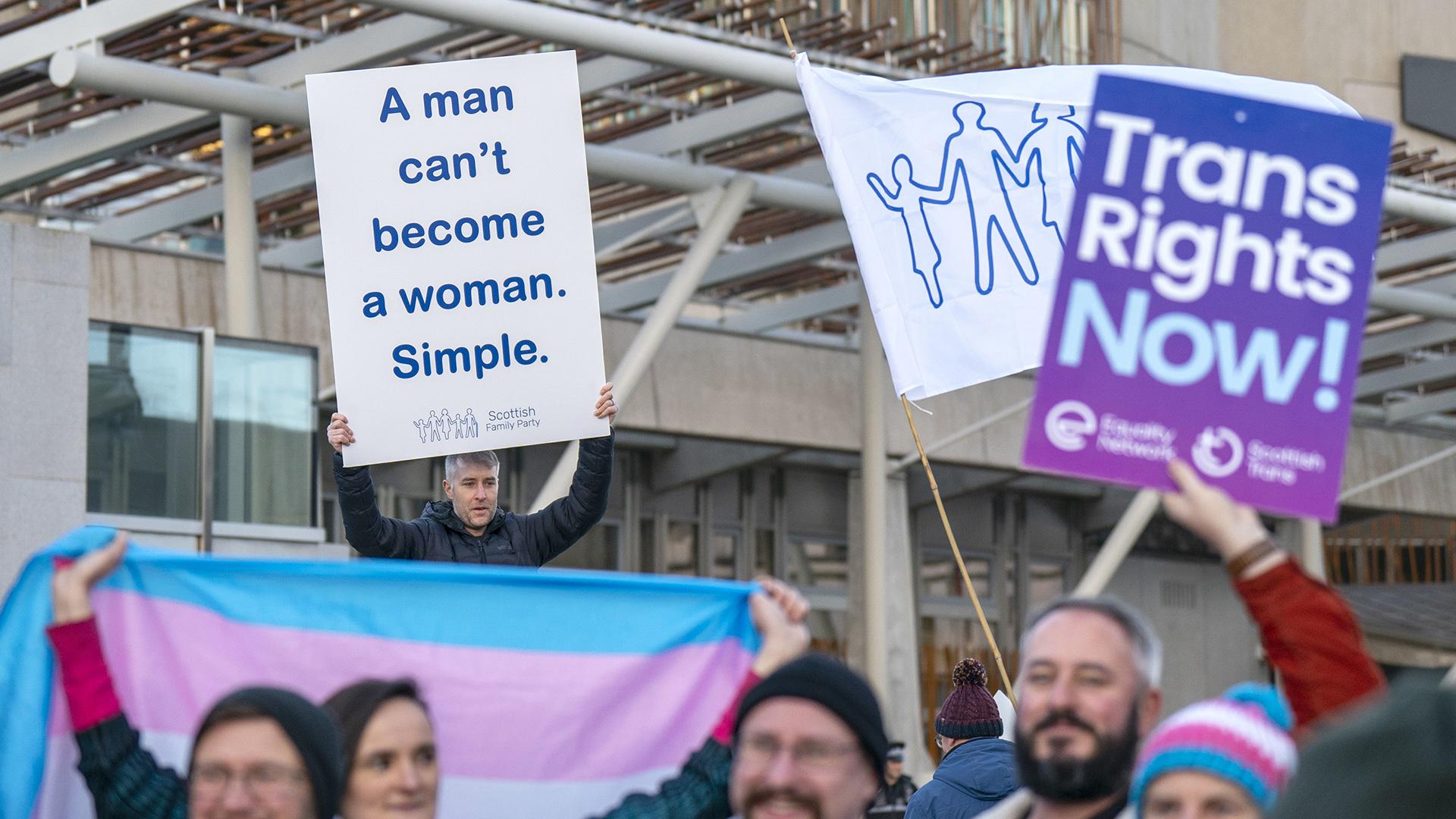
Campaigners gathered outside the Scottish Parliament before the bill was passed
Deputy First Minister Shona Robison also talked about the case during an earlier interview with BBC Radio's Good Morning Scotland programme.
Ms Somerville said that media speculation on the government's decision was "deeply disappointing" and "regretful".
She said that while Ms Robison did not confirm or deny the reports, she accepted it was "inferred by the comments made".
"She in no way meant to pre-empt the statement made today," Ms Somerville said, adding that Ms Robison had apologised to Presiding Officer Alison Johnston.
'Very worrying place'
Ms Somerville said that while the bill would not be withdrawn from parliament, that it was "impossible" to see a way forward.
She told MSPs the bill was "not in the bin and awaits an incoming UK government that has more respect for devolution".
The minister claimed the Scottish secretary views the Section 35 powers as a "veto" which can be used on legislation they "disagree with".
"Regardless of people's views and opinions on gender recognition, that is a very worrying place for our parliament to be," Ms Somerville said.
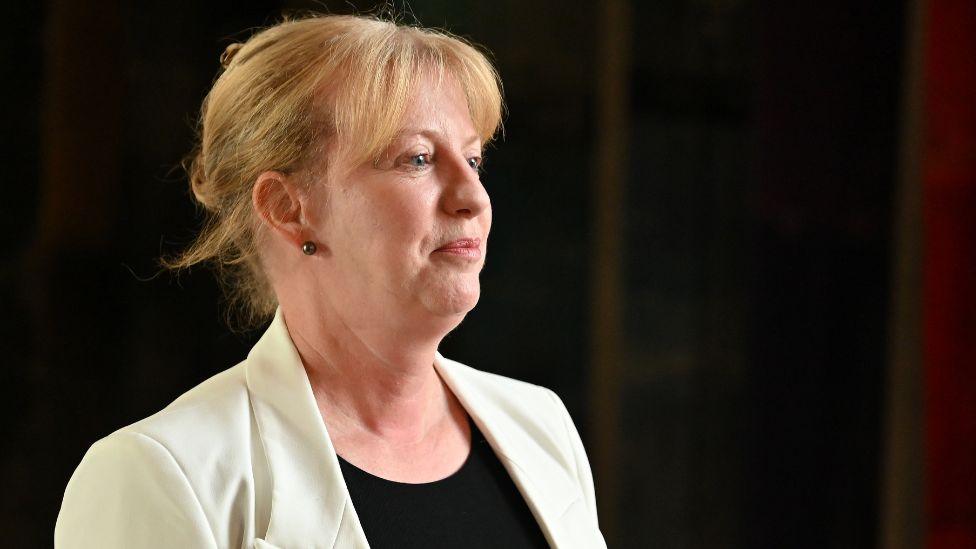
Deputy First Minister Shona Robison apologised for discussing the government's decision ahead of the announcement
She told parliament that while many trans people would be disappointed by this decision, the government would "never waver" in its commitment to their rights.
"You are not a threat and you will always be free to live your lives free from prejudice and abuse in the type of Scotland we all want to see," the minister said.
She said the government remained committed to consulting on plans to end conversion practices for both sexual orientation and gender identity.
In response to the statement, Mr Jack said the Scottish government had pursued the case despite warnings about the cost to the taxpayer.
"These resources would have been better spent addressing the priorities of people in Scotland - such as growing the economy, cutting NHS waiting lists and improving our children's education," he said.
"The UK government now intends to lodge an application with the court seeking our expenses in defending this matter."
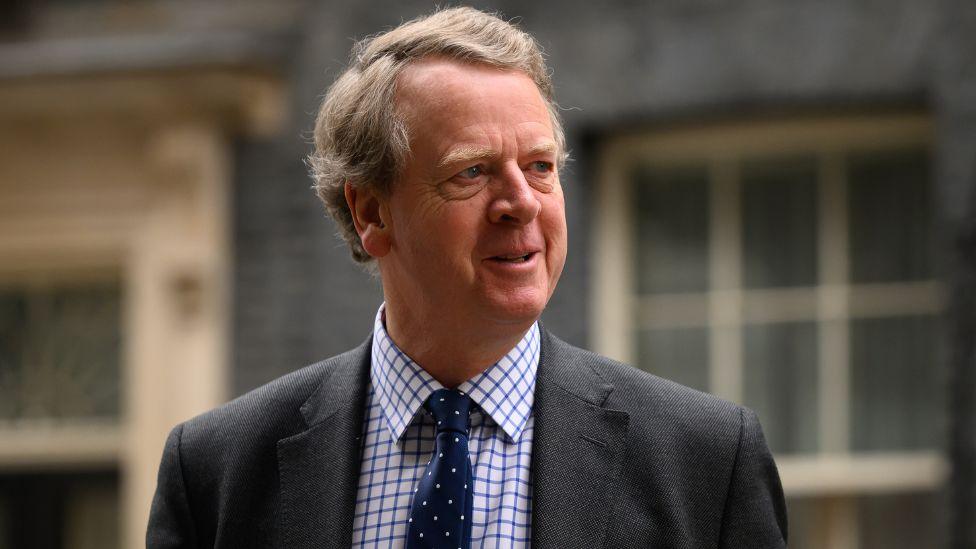
Scottish Secretary Alister Jack welcomed the government's decision
Speaking to the Scottish Affairs Committee last week, the Conservative minister said he was "minded" to pursue the Scottish government for about £150,000 in costs relating to the court battle.
The Scottish Secretary told MPs he was holding discussions with UK government law officers about that possibility.
He also warned the total cost to the taxpayer could be "the thick end of £2m" if the case were to go all the way to the Supreme Court.


This has been a long and bruising episode for the Scottish government.
Perhaps they have had devastating legal advice, or concluded that this is not a hill they want to keep fighting on - at great expense.
But their key concern is that it doesn't become an even more damaging affair for the trans community.
If this were simply a question of the veto power contained in the Scotland Act, ministers might have been tempted to fight on.
They do not want to give in on the principle of that - but nor do they want to leave a marginalised group at the centre of a constitutional stand-off.
The promise to keep the bill on ice is mostly a bid to put pressure on a future UK administration, whatever party forms it.
In practice, the legislation is off the agenda - and the question is now what the government will deliver instead, having long promised to do something for the trans community.

The Gender Recognition Reform (Scotland) Bill was backed by MSPs from all parties, passing by 86 votes to 39 following heated debates.
Those opposed to the changes have warned they could risk the safety of women and girls in same-sex spaces such as hospital wards and refuges.
Supporters argued it would make the process of obtaining a gender recognition certificate easier and less traumatic for trans people.
The legislation would remove the need for trans people to be diagnosed with gender dysphoria by a doctor before they are allowed to change their legally-recognised sex in Scotland, and would lower the age that someone can apply for a GRC from 18 to 16.
The period in which applicants would need to have lived in their acquired gender would be cut from two years to three months.
'Bitter blow'
Scottish Tory justice spokesman Russell Findlay said the announcement was a "hard won victory" for opponents of the "dangerous" bill.
The gender recognition reforms have been championed by the SNP's government partners, the Scottish Greens.
Green equality spokesperson Maggie Chapman said the court ruling was a "bitter blow" to trans people, who would now have to "wait indefinitely" for the reforms.
Alba Party MSP Ash Regan, who resigned as community safety minister over the bill while formerly an SNP parliamentarian, said the "sorry and sad episode has created a culture where women are dismissed as transphobes and bigots".
She called for the government to apologise and said the law must never be passed.
- Published8 December 2023
